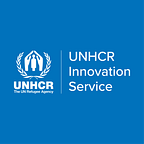A digital pivot in cash assistance
How partnerships and communities make mobile money solutions work
By Veena Krishnamoorthy, Cash Based Intervention Officer & Giulia Balestra, Associate Innovation Officer, UNHCR
The journey to include refugees into the formal financial service market is a long one. If understanding the challenge in Zambia was in and of itself a challenge (you can read more about this here), finding the way forward required to step, once again, in the unknown and significantly way out of comfort zones.
Complex challenges, such as the one of financial inclusion, call for more than the technical prowess. Hard-core determination, resilience, and a positive and creative mindset in the face of adversity were more than needed. It was crucial for UNHCR and its partner MicroSave to keep working with refugees to define what the best way to provide assistance would be.
Several studies have shown that digitization of social cash transfers can pave the way and bring excluded and low-income households into pathways of financial inclusion and can also improve transparency and accountability. Mobile money transfers can in fact address many of the financial and infrastructure challenges that were present in Meheba: the lack of electricity and ATM machines, high liquidity management cost for maintenance of ATM machines, distance to the settlement. Could this be one of the solutions (or part of the solution) in Meheba too? The time spent in the field, the information gathered talking to refugees, seemed to point in that direction. However, one thing was knowing a possible direction, another was figuring out if and how it could work in Meheba.
Possible solutions, potential allies
After MicroSave invested time to understand the context of Meheba, it was now vital to identify potential partners and find first allies. This started with a scan of financial service providers in Zambia, assessing their proximity to the settlement, and willingness to work with a small population. It took financial institutions, telecommunications companies and government bodies, MicroSave and UNHCR to come together and make this work. With these allies and a potential solution to test, MicroSave and UNHCR were ready to pilot the digitization of cash assistance in Meheba. The team and its partners worked closely with refugees to provide digital and financial education to the community, evaluating and adjusting the approach based on what they were learning during the pilot. Based on these lessons, UNHCR Zambia developed a cash based intervention strategy with the goal of making its programme more sustainable and reliable over time.
The missing community link
Despite a good pilot phase and important improvements, something still seemed to be missing. Something that is often talked about in the humanitarian space, something that UNHCR’s Innovation Service has often written about, yet something that still deserves efforts to be improved: accountability and feedback mechanisms.
How can we get better at listening (in general) and to displaced communities (in this specific case) and how would we know if a certain solution is working, could be different, better? More than a “nice to have”, this was a non-negotiable aspect and a determinant factor for the success of the project: a stronger complaints and feedback mechanism. That’s where many projects often stop and thus miss out on a good opportunity: the extra mile. In 2019, UNHCR Zambia operations applied to UNHCR’s Community Connectivity Fund and received funding and support from the Innovation Service to continue with an extra push and margin to improve the project. As a result, three refugees were hired to collect complaints and feedback, but also to train and support other refugees who wanted to register for the digital assistance. Their role was crucial in helping UNHCR to systematically capture information and voice their community’s concerns and difficulties. A more solid complaints and feedback mechanism — and the fact that these were acted upon systematically — had the effect of increasing trust in cash based intervention and the uptake of digital assistance in Meheba.
The human factor
Digital solutions can bring efficiency and transparency, but as this experiment in Meheba showed, when a new system is introduced — especially in communities with low literacy rate and little understanding of digital systems — the human factor is as important as the other components. The success of digitization of cash based interventions in Zambia was inextricably linked to the complaint and feedback mechanism that was put in place. Adoption of the new solution and behaviour change happened not only because the digitization of assistance was a more efficient and secure system, but because refugees had and will continue having an active role and a say in how this was designed and implemented.
